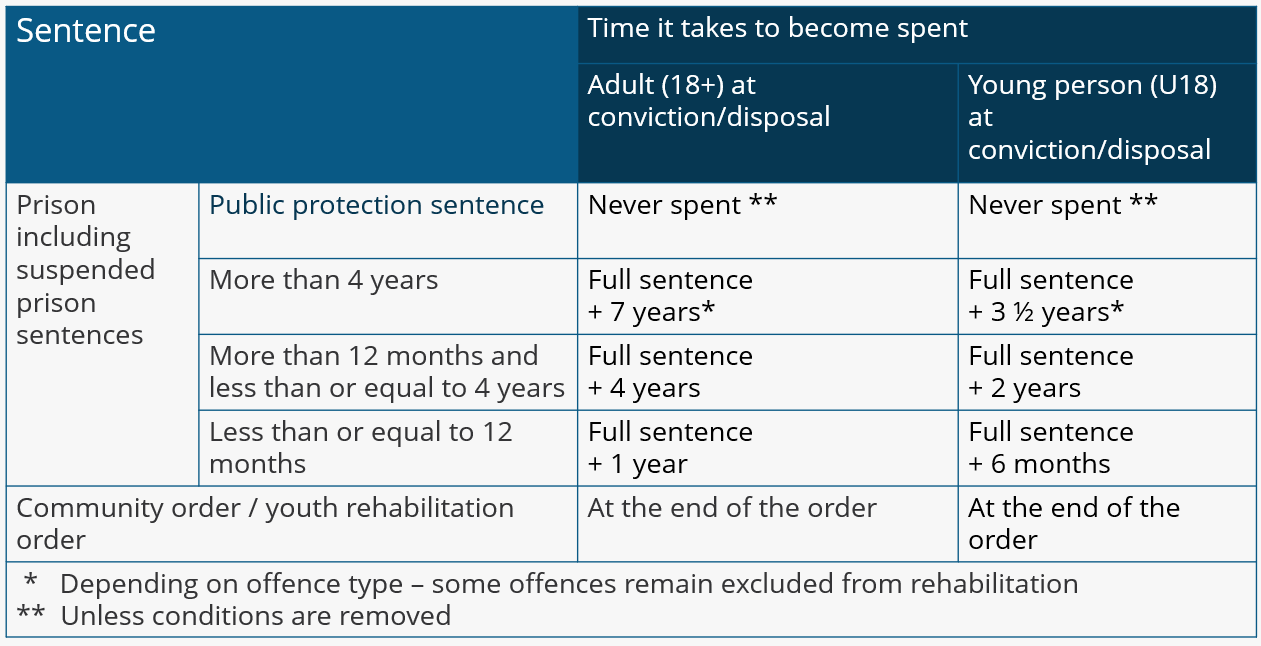Aim of this information
Basic DBS checks can legally be carried out by any employer or voluntary organisation as part of their recruitment process. They may also be required if you need to make an insurance claim.
This information sets out what will be disclosed on a basic DBS check and how you can apply for one. This information forms part of our disclosing to employers section.
Why is this important?
If you’re applying for jobs which may require a basic DBS check, it’s important that you know what will be included on the certificate. This will ensure that you disclose accurately what you’re legally obliged to disclose, while helping to make sure you don’t over disclose.
Types of roles that commonly require a basic DBS check
Any role that is covered by the Rehabilitation of Offenders Act can request a basic DBS check, for example supermarkets, delivery companies and warehouse roles.
What will be disclosed on a basic DBS check
A basic DBS check will disclose any convictions which are unspent. To find out whether your conviction is currently unspent, you can use our disclosure calculator.
If you do have unspent convictions, the basic DBS check will give details of the date of conviction, the name of the court you appeared in, the offence committed, the date of the offence and the sentence received.
What will not be disclosed on a basic DBS check
Basic DBS checks do not disclose any convictions which are spent, cautions, fixed penalty notices or allegations.

How to know whether your convictions are spent
This is worked out by the Rehabilitation of Offenders Act 1974 – see the table below.
For more information, see our information on the Rehabilitation of Offenders Act or visit our disclosure calculator.

How you can apply for a basic DBS check
You or an employer on your behalf (and with your consent), can apply for a basic DBS check. It costs £21.50 and is issued by the Disclosure and Barring Service who will send it to you, unless you choose for it to be sent to the employer. It normally takes about 14 days to receive the certificate. If all of your convictions are spent, the certificate will come back ‘blank’.
Find out the contact details of Disclosure and Barring Service.
More information
- For practical self-help information – Further information can be found on our :
- disclosing to employers section
- understanding your criminal record section
- Rehabilitation of Offenders Act 1974 section
- or visit our disclosure calculator to work out whether your conviction is spent
- To discuss this issue with others – Read and share your experiences on our online forum.
- Questions – If you have any questions about this, you can contact our helpline.
Download a short guide to this: What will be disclosed on a basic DBS check? – Simple guide [PDF]


Comments
Add Comment